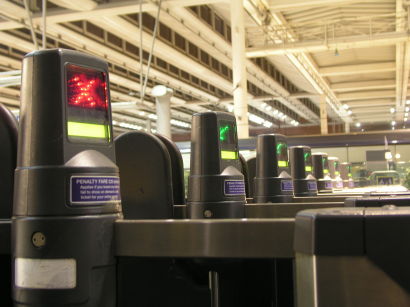TRANSPORT for London has revealed that it will introduce payments by contactless debit or credit cards next year, and is claiming that London will ‘lead the world’ when the system goes live.
However, passengers using bank cards in the first few months may risk paying more than they need.
Passengers using Oyster smartcards benefit from fare-capping, which prevents further deductions when the total amount paid during a single day has reached the equivalent price of a Travelcard.
But TfL admitted that early users of bank cards will not have this protection. In addition, even when fare-capping is introduced passengers will have to remember to use the same card for all their travel on a particular day, if they want their expenditure to be recognised and capped.
The capital's 8,000-strong bus fleet will be equipped in time for the Olympics, although bank cards will only be accepted on the Underground, Overground, Docklands Light Railway and trams later in 2012.
Discussions are also under way with National Rail operators in Greater London about whether contactless payment cards could be used at those stations where Oyster is already accepted.
Contactless payment will also reduce commissions and processing costs for TfL, as well as enabling fewer Oyster cards to be issued.
Will Judge, TfL’s Head of Future Ticketing, said: “We are leading the way globally with this project, and with over twelve million contactless debit and credit cards already in circulation in the UK, we are confident that this payment option will be widely adopted in the coming years, either as an alternative to Oyster or as a back up for when the Oyster card is left at home.”
Meanwhile, TfL is also in talks with overseas operators to share detailed information and experience. Potentially, passengers from Britain and other countries could eventually be using bank cards on urban transport networks around the globe.


